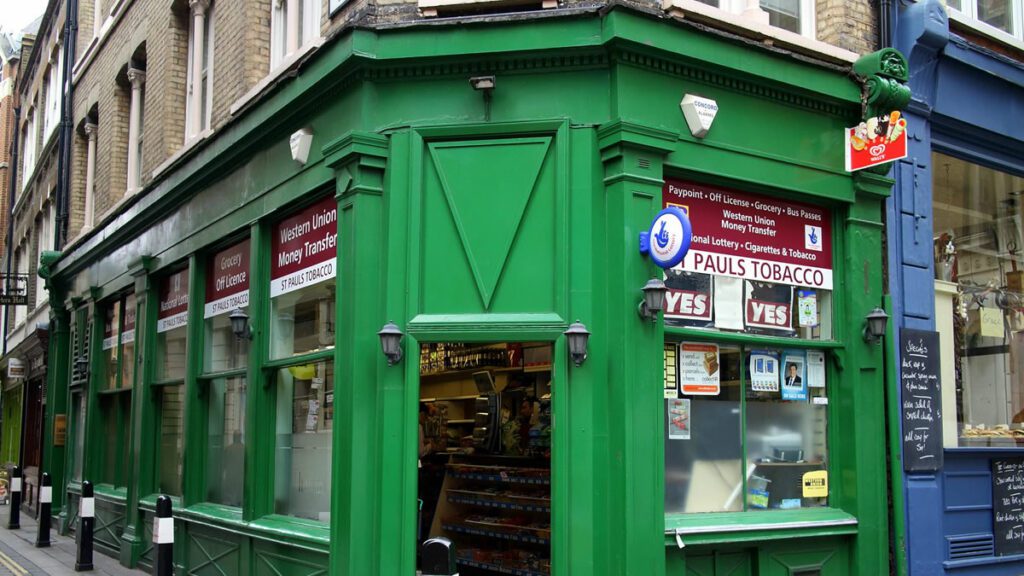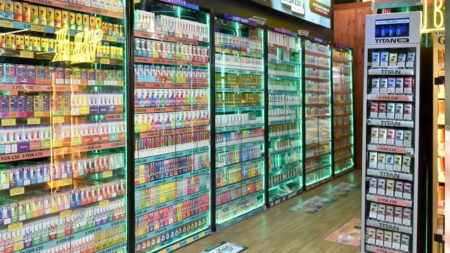The retail landscape in the United Kingdom is on the cusp of a significant transformation as the Tobacco and Vapes Bill progresses through Parliament. This landmark legislation, currently at its second reading in the House of Lords after passing all stages in the Commons, is set to introduce a 'generational smoking ban'. Under this ban, it will become illegal for anyone born after January 1, 2009, to purchase tobacco or nicotine-containing products, including vapes. Additionally, the sale of disposable vapes will be prohibited from June 1, 2025, onwards.
As enforcement agencies scale up their investigations, there are three key steps that every business selling tobacco and vapes should take to ensure compliance and avoid hefty fines.
1. Understand Which Vape Products Will Soon Be Illegal to Sell
From June 1, 2025, it will be illegal for businesses to sell, supply, offer to sell or supply, or possess for sale or supply any single-use or 'disposable' vapes, regardless of whether they contain nicotine. Reusable vapes, however, will still be legal to sell or supply.
A single-use or disposable vape is a product that is neither designed nor intended to be re-used. For a vape to be considered reusable, it must be both rechargeable and refillable. A vape is not considered rechargeable if it has a battery that cannot be recharged or a coil that cannot be purchased separately and easily replaced. Similarly, a vape is not considered refillable if it has a single-use container, such as a pre-filled pod, that cannot be bought separately and replaced, or a container that cannot be refilled.
From June 1, 2025, all vaping products sold, offered for sale, or possessed for sale must have the following features:
Must be refillable
- A container that is refillable, or
- A container that is separately available and can be replaced, such as a pod system, by a user in the product's normal course of use.
Must be rechargeable
- Contains a battery that can be recharged, and
- A replacement coil or a coil contained in a single-use cartridge or pod that is separately available after purchase and can be replaced in the product's normal course of use.
For nicotine-containing vaping products, retailers can check whether a product is reusable on the Medicines and Healthcare Products Regulatory Agency (MHRA) website. However, it is essential to first consider the government's definition of a reusable vape. Before a nicotine-containing vape is placed on the market, it must be notified to and approved by the MHRA, who confirm this by publishing the name of the product on the MHRA notified products list. If a product is not listed, it is not legal to sell or supply it in the UK.
From June 1, the MHRA will remove all single-use vaping products containing nicotine from the list. To prepare, retailers should stop buying any single-use vapes now and prioritize reducing any current stock. Vapes that do not contain nicotine do not have to be registered on the MHRA website, so retailers must check the product is not single-use by other means. If unsure, contact local trading standards for advice.
2. Familiarize Yourself with the Details of the Regulation
The Tobacco and Vapes Bill introduces a range of new regulations that will apply UK-wide, covering Scotland, Wales, and Northern Ireland. Some of the most significant clauses include:
Clause 10: Sale of Vaping or Nicotine Products to Under-18s
This clause makes it an offense to sell any vaping or nicotine product to individuals under the age of 18, replacing existing regulations that only applied to nicotine vapes. Retailers who fail to comply could face penalties of up to £2,500.
Clause 28: Restricted Sale Order
This clause introduces measures to prevent persistent offenders from selling tobacco, vaping, and other nicotine-related products. A retailer who has committed a relevant offense at least twice within two years can be prohibited from selling such products for up to 12 months.
Clause 37: Fixed Penalty Notices (FPNs)
FPNs provide an alternative to prosecution for businesses and individuals who breach age restriction laws on tobacco and nicotine products. The fines are set at £2,500 for licensing-related offenses and £200 for all other offenses, with a 50% reduction if paid within 14 days.
Clause 49: Age of Sale for Tobacco Products
This clause updates Scottish tobacco laws to align with the new UK-wide restrictions, making it illegal to sell tobacco, herbal smoking products, and cigarette papers to anyone born on or after January 1, 2009.
Clause 60: Digital Age Verification for Tobacco and Vaping Products in Scotland
This clause allows for digital methods of age verification in Scotland, modernizing the process beyond physical ID checks.
Clause 61: Regulations on Displaying Vaping and Nicotine Products in Scotland
Scottish Ministers will have the authority to regulate how vaping and nicotine products are displayed in retail settings, including empty packaging.
Clause 68: Age of Sale for Tobacco Products in Northern Ireland
This clause brings Northern Ireland in line with the UK-wide ban on selling tobacco and cigarette papers to those born on or after January 1, 2009.
Clause 69: Proxy Purchasing of Tobacco in Northern Ireland
Adults in Northern Ireland will be committing an offense if they purchase tobacco, herbal smoking products, or cigarette papers for anyone born on or after January 1, 2009.
Clause 72: Age of Sale Notices in Northern Ireland
Retailers in Northern Ireland will be legally required to display a notice stating: "It is illegal to sell tobacco products to anyone born on or after 1 January 2009."
Clause 76: Sale of Vaping and Nicotine Products to Under-18s in Northern Ireland
Northern Ireland will introduce legal age restrictions on all nicotine products, not just vapes. Retailers selling any nicotine product to someone under 18 will face fines of up to £5,000 unless they can prove they took reasonable steps to verify the customer's age.
Clauses 113-116: Bans on Advertising Tobacco, Vaping, and Nicotine Products
The bill introduces stringent new restrictions on the advertising of tobacco, herbal smoking products, vaping products, and nicotine products, aiming to reduce exposure to tobacco and nicotine-related promotions, especially among young people.
Further details on policy and each of the 170 clauses can be found in the latest Tobacco and Vapes Bill Explanatory Notes.
3. Train Your Staff to Ensure Compliance
Businesses that fail to comply with the new regulations face fines of up to £5,000 per offense, making it crucial to train staff on the upcoming changes. Remember that banning disposables will not eliminate underage attempts to purchase age-restricted products, so retailers who remain vigilant will be best placed to protect both their business and their license.
To ensure compliance, retailers should:
- Review their age verification processes and ensure staff are trained to comply with the new legal requirements.
- Implement digital age verification methods, where applicable, to modernize the process beyond physical ID checks.
- Regularly audit staff performance and provide ongoing training to maintain high levels of compliance.
- Display the required age restriction notices prominently in-store and online.
- Keep detailed records of staff training and any incidents related to age-restricted products.
Conclusion
The Tobacco and Vapes Bill represents a significant shift in the UK's approach to regulating tobacco and nicotine products, with far-reaching implications for retailers, consumers, and public health. As the June 1, 2025, deadline for the ban on single-use vapes approaches, it is essential for retailers to take proactive steps to ensure compliance and avoid costly penalties.
By understanding which products will soon be illegal to sell, familiarizing themselves with the details of the regulation, and training their staff to adhere to the new requirements, retailers can navigate this changing landscape with confidence. While the transition may present challenges, particularly for businesses that heavily rely on disposable vape sales, adapting to these new regulations is not only a legal obligation but also an opportunity to contribute to broader public health goals.
As enforcement agencies ramp up their efforts to ensure compliance, retailers who remain vigilant and proactive will be best positioned to protect their businesses, their customers, and their communities. By working together to implement these new regulations effectively, we can create a safer, healthier future for all.

Vape Content Creator | Flavor Reviewer | Lifestyle & Vape Culture Editor
Emily Carter is a vape-focused content creator specializing in flavor reviews, device aesthetics, and lifestyle-oriented vaping content. With hands-on experience testing disposable vapes and pod systems, Emily delivers clear, visually driven insights designed for adult consumers.








